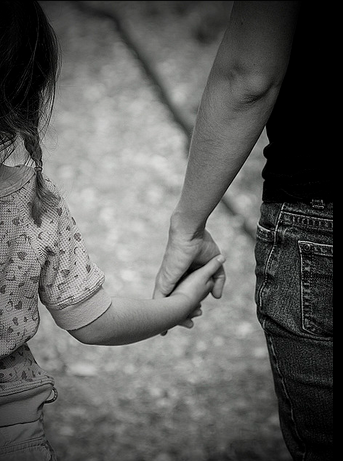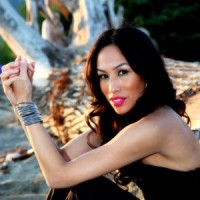Like all women who struggle with self-worth issues because of society’s ridiculous standards of beauty, I had to go through my own journey towards self-acceptance—learning to celebrate my own beauty.
One huge impact in my growth was seeing myself through the eyes of my daughters.
Our children are born with innate special love for their parents, and I have had the honor of experiencing it. The problem is learning to accept this love fully.
I have a special bond with all my children but my youngest child, Keziah Blue, loved me in a significantly different way. It was almost as if Keziah came out of my womb in love with me. Sometimes I almost feel so undeserving of the deep love she has for me—the joy I feel as she describes the beauty she sees in me blows me away.
Her detailed description of how she loves me is, at times, as absurd as her poem about punching anyone in the face if they thought I was ugly, or scientific comparisons of her love for me being as vast as the stars in the universe.
But the way she looks at me is a far cry from how I looked at myself growing up.
Like many families, mine was dysfunctional. I came to accept early in life that my mother was not a natural nurturer. Being soft or loving was not her strength. She outwardly expressed that I was not beautiful enough for her standards.
I was called “ugly” and “buck tooth.” Phrases like, “if only you looked like her” or “you would be perfect if it weren’t for your nose,” were some of the kinder words. Obviously, these types of comments do not lead to any “girl power” or self-esteem. It only added to my growing insecurity and low self-worth.
So I gave up wanting to hear those magical words from my mother’s mouth. Words like, “You’re perfect, you’re beautiful, you’re wonderful and you’re good enough for me”.
Today, I have girls of my own. I have vowed to tell them often how beautiful and perfect they are. I never want them to feel less than perfect in my eyes or to themselves.
When Keziah was eight years old, instead of calling me “mommy’,” she called me “beautiful” or my favorite, “hey pretty” and each time—even in my most dreadful appearances—I felt flattered.
The degree that I accept and feel my own “beautiful” is depth at which my daughter will be able to feel her own “beautiful.” I realized my mother couldn’t tell me I was beautiful because she didn’t feel beautiful herself.
How can I teach my daughters how beautiful they are when their own mother doesn’t believe it herself? How I see myself greatly impacts how my girls will see themselves.
One day, as Keziah Blue and I were walking, holding hands, she described to me how beautiful I was to her. “Hi beautiful, each freckle on your face shows how pretty you are” (I have quite an abundance of freckles).
At that particular moment, I remembered my childhood and my longing to hear those words said to me. Holding back my tears, I explained to her how grateful I was for her kind words and love for me.
I shared how I longed for my mother to call me beautiful but she never saw it in me. I told her how grateful I am for how blindly she loves me without exchange or condition—and how beautiful she is to me.
My daughters have taught me to “find the pretty” inside of myself. But being pretty in their eyes is more than enough.
Love elephant and want to go steady?
Sign up for our (curated) daily and weekly newsletters!
Editorial Apprentice: Amanda Fleming Taylor / Editor: Renée Picard
Picture: Flicker












Read 13 comments and reply